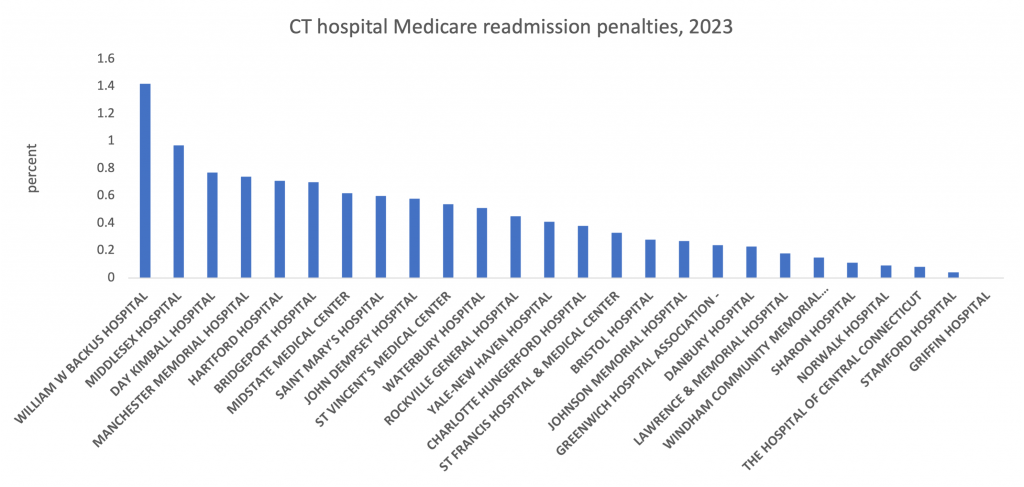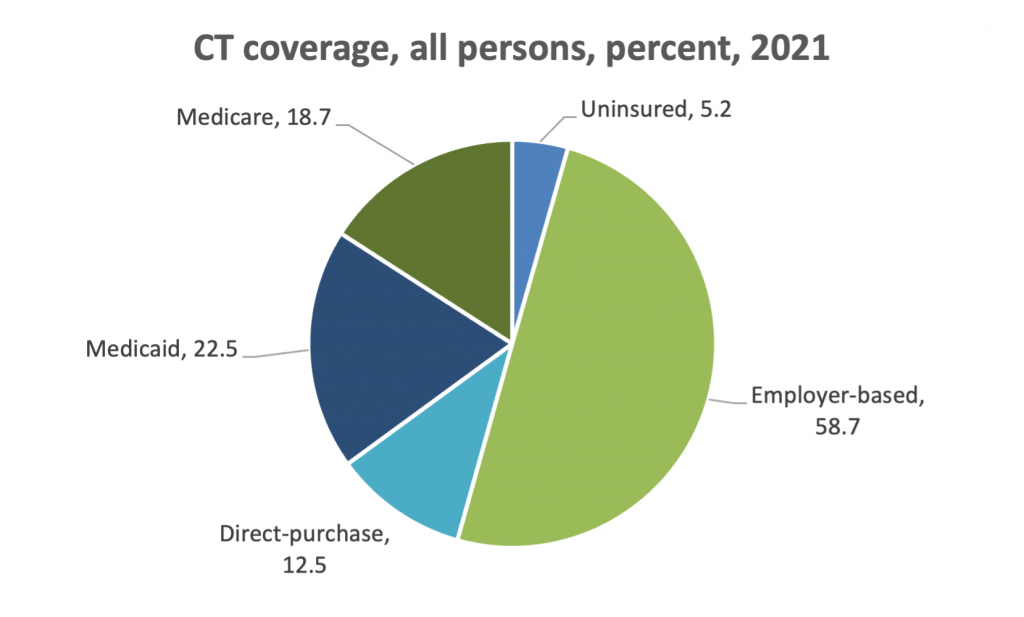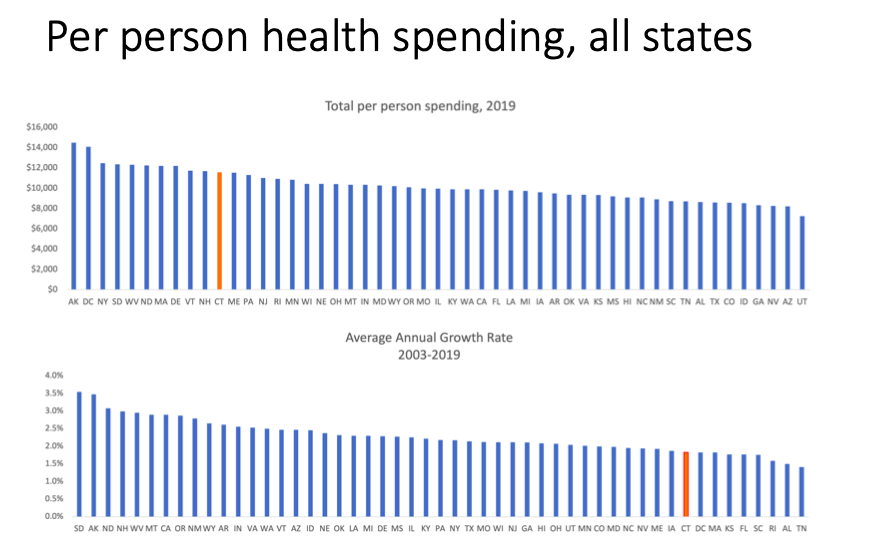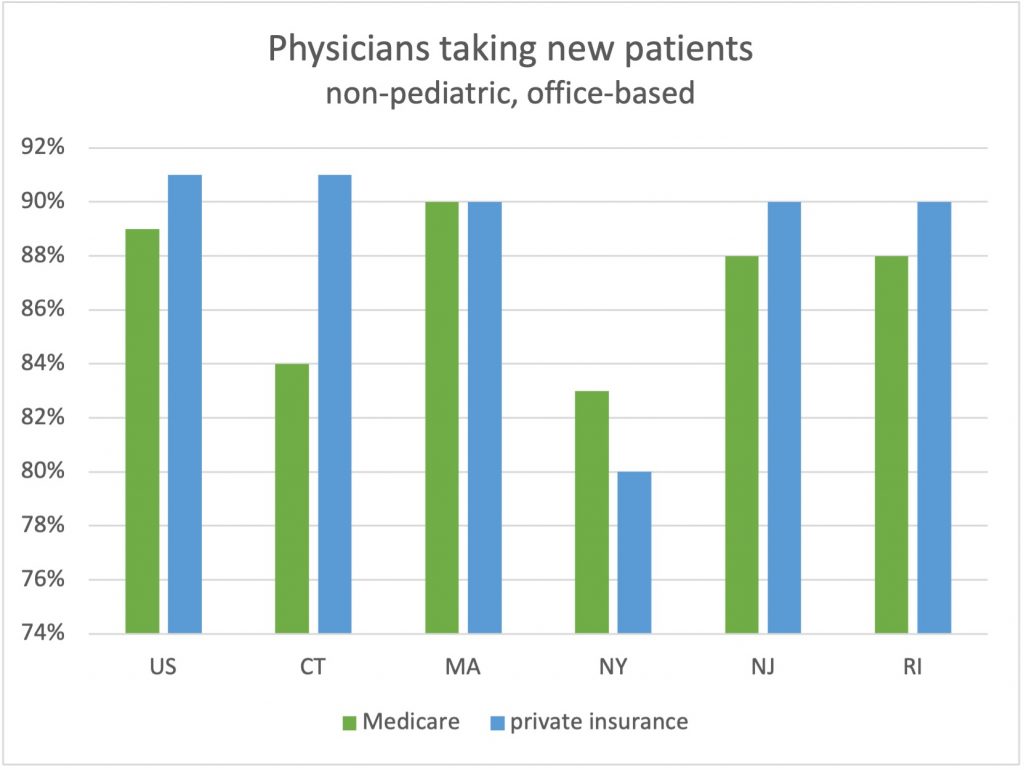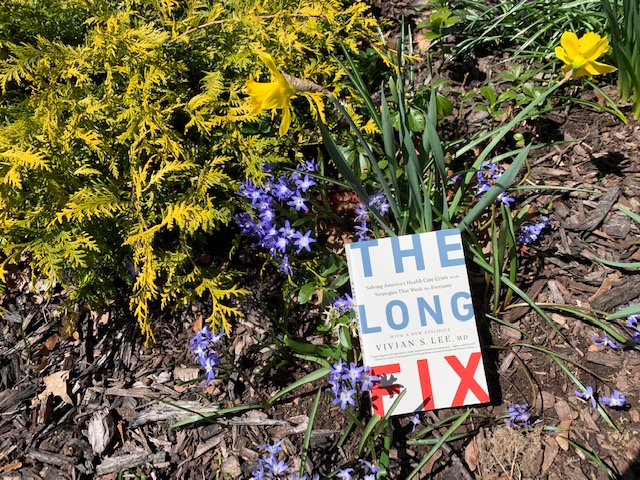Medicare
CT hospital readmission penalties higher than US, again
Even with an eased formula due to COVID, all but one acute care Connecticut hospital will be penalized by Medicare next year for higher-than-expected readmission rates. Next year, Connecticut hospitals will be docked by 0.456% on their Medicare payments, higher than the US average of 0.428%. Average Connecticut hospital readmission penalties have been higher than…
Read MoreAnalysis: New study finds 1 in 5 households has medical debt that averages $21,687
Having health insurance is no longer the protection it used to be. A pair of new studies shine a bright light on inadequate insurance and its consequences – medical debt. Read more
Read MoreNumber of uninsured CT residents continues down despite COVID
Download the report The latest numbers from the US Census on US health coverage last year find that there were 184,000 uninsured Connecticut residents (5.2%) in 2021, down 23,000 from 2019 (at 5.9%). Both years were far below 2013, before implementation of the Affordable Care Act, when 333,000 or 9.4% of state residents were uninsured.…
Read MorePrimary care spending boost and capitation didn’t work in private plans either
The big idea circulating in some CT health policy circles to control the costs of healthcare is to boost primary care with tons of money and capitate provider payments. Primary care is regular health care for prevention, like check-ups, and common health problems. A new study finds that the idea failed in private insurance, as…
Read MoreOP-ED: Be careful in making changes when the glass is half full
There is good news on Connecticut health spending – and we can use it. Analysis of new data has found, not surprisingly, that Connecticut residents spend a lot on healthcare. But the good news is that our average annual rate of growth, at 1.8%, was the ninth lowest among states from 2013 to 2019. We…
Read MoreGood news on CT healthcare costs
New data from researchers at the University of Washington on state per person healthcare spending finds that between 2013 and 2019, Connecticut’s costs grew at the ninth lowest level among states. We dropped from seventh highest in the US in 2014 to eleventh in 2019. Our growth rate was lower than nearby comparator states and…
Read MoreCTNJ Op-Ed: Insurers’ explanations for extreme rate increases don’t make sense
Connecticut’s health insurers are asking state regulators to let them increase premiums an average of 20.4%, far more than last year’s 8.6% request. Insurers in other states are asking for less than half as much. Connecticut insurers are blaming increased demand for services due to COVID backlogs, that deductibles aren’t keeping up with rising costs,…
Read MoreMost CT physicians take Medicare patients, but less than US average; implications for payment reform
At 84%, the large majority of physicians in Connecticut take new Medicare patients according to a new analysis by the Kaiser Family Foundation, while 91% take new privately insured patients. The US averages are 89% for Medicare and 91% for privately insured new patients. The analysis was of non-pediatric, office-based physicians in 2015 and 2017.…
Read MoreBook Club: The Long Fix
I’ve been avoiding reading The Long Fix: Solving America’s Health Crisis with Strategies that Work for Everyone by Vivian Lee. But this semester, one of my students asked if she could read it for her Book Review assignment. I couldn’t really refuse, so I had to read it too. The author, a physician and healthcare…
Read MoreFact Check: Does OHS’s Primary Care Roadmap include capitation? Yes, 31 times
In the Insurance Committee’s March 1st public hearing on HB-5042, advocates stated that the Office of Health Strategy’s Primary Care Roadmap plan, authorized in the bill, includes capitation as the payment model. Primary care capitation has failed in Medicare despite significant investment and multiple trials. Advocates are concerned that, if implemented, the Roadmap would divert…
Read More
